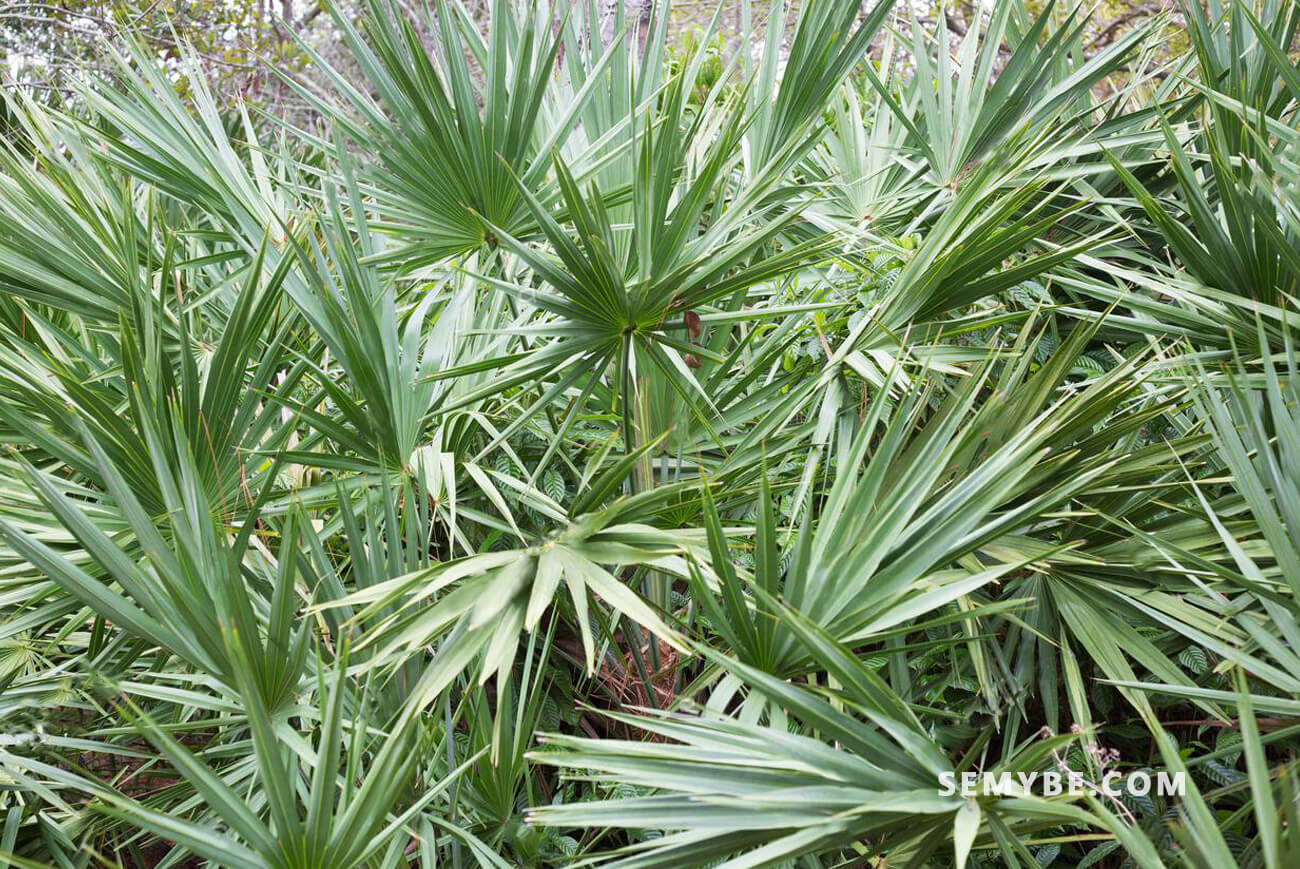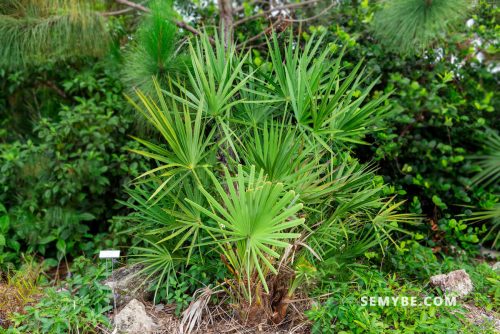
Serenoa Repens
1. History and use
The sabal grows on the sandy dunes bordering the Atlantic coast, from South Carolina to Texas Il multiplies from seed in spring on well drained soils and very sunny. The berries, harvested at maturity in autumn, are often ginned before being dried.
2. Description of the plant
THE BAYS OF SABAL were picked by the Indians of North America According to a legend, settlers, seeing animals with “creamy and greasy” flesh feast on it, would have tasted these berries and attributed them to them curative properties. Since the nineteenth century, the pulp of the fruit is considered tonic, today it is used to treat asthenia, diseases of the unary pathways and hypertrophies of the prostate.

3. Curative action
- Diuretic
The sabal has been nicknamed ” the plant-probe ” because of its ability to strengthen the neck of the bladder and to decrease the hypertrophy of the prostate II is used mainly for its properties diuretics and antiseptics in case of cystitis II combines well with horsetail and hydrangea to treat prostate infections.
- Anabolic action
Sabal seems to contribute to the good assimilation of food by the body strengthens the tissues of the body, promotes their growth and accelerates weight gain. The fruit pulp or dye is presents against weight loss, asthenia and lack of tone.
4. Uses
Hedges have a strong diuretic and tonic effect Traditionally North American Indians use it to treat many ailments.




